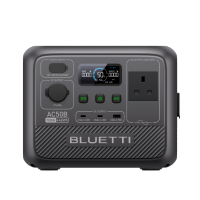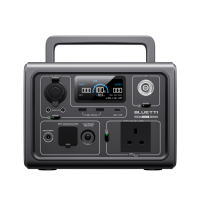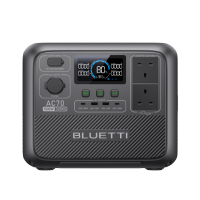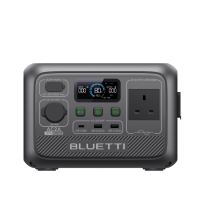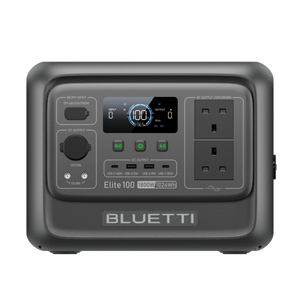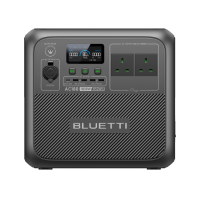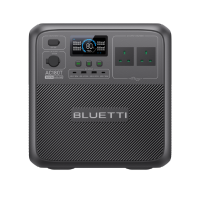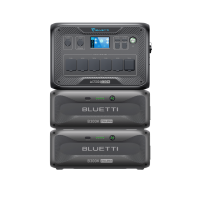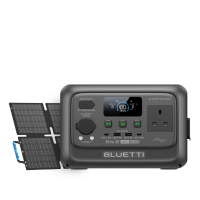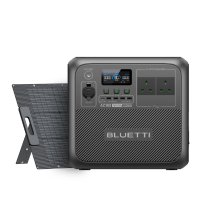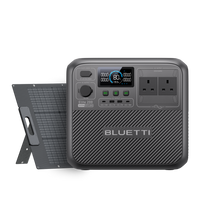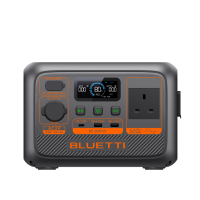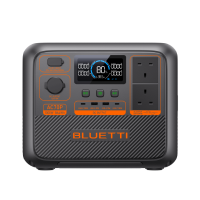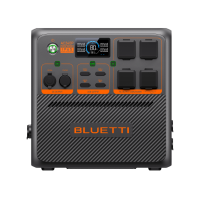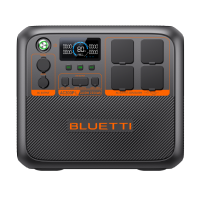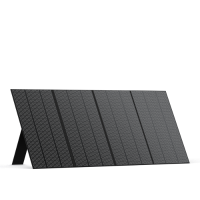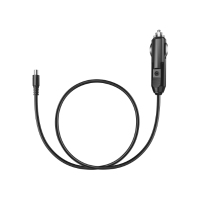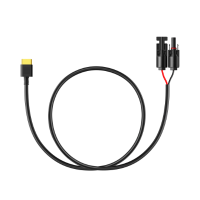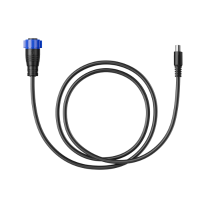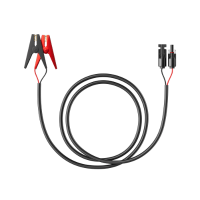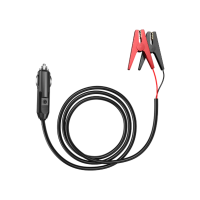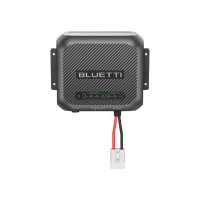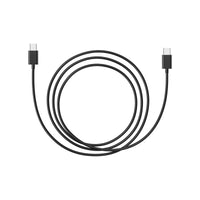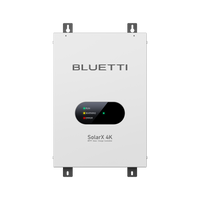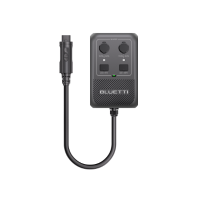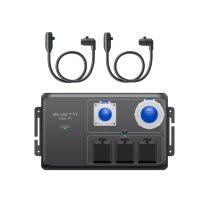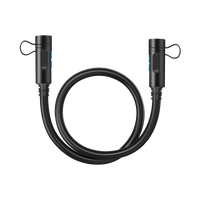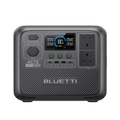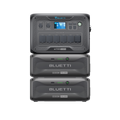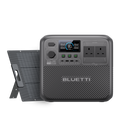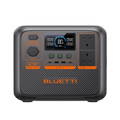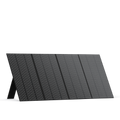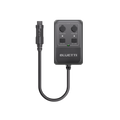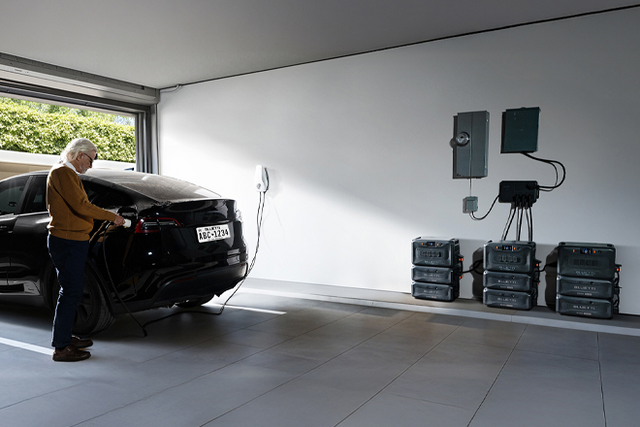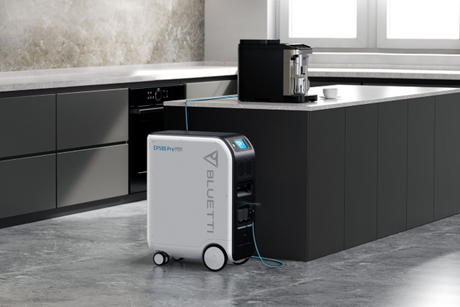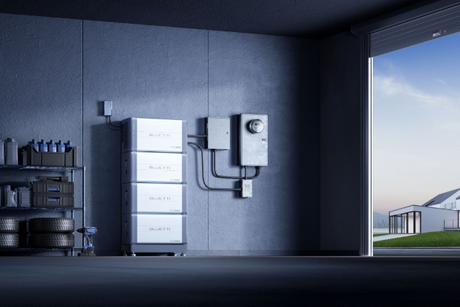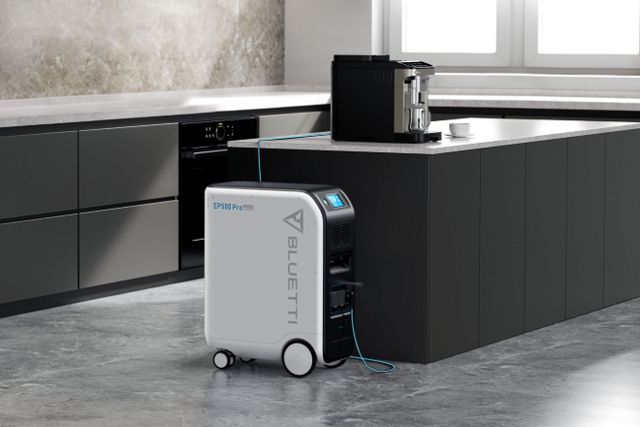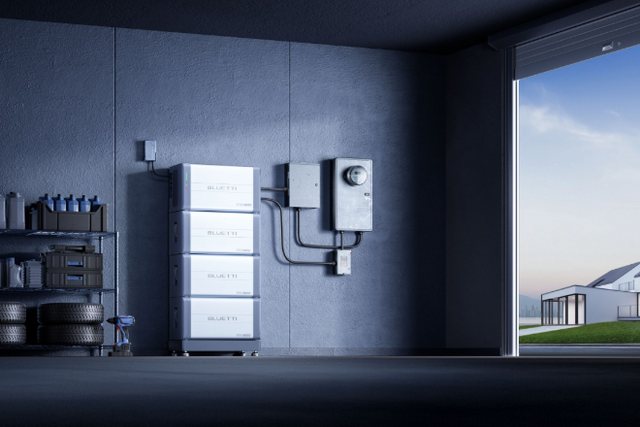Average Power Usage per Day: A Complete Guide for UK Homes

Introduction
Energy consumption needs management, especially for UK households facing high electricity and gas costs. For better management, one must understand the average power usage per day. Understanding the actual consumption and knowing the price can result in reduced bills. Are you still thinking about how to track it and what it means for your bills?
Let's discuss the electricity usage in UK households and break down the overall cost in pounds per day. Moreover, we will highlight some factors that influence the consumption and some tips to reduce it. The smart and renewable energy source, like the BLUETTI Apex 300 + Solar Panels, also plays a significant role in managing the electricity cost.
Understanding Average Power Usage Per Day
When the energy consumption is concerned, kilowatt-hour (kWh) is the unit for monitoring. For better understanding, one kWh represents the energy used when you run an appliance of 1,000 watts for 1 hour. If you boil water in an electric kettle of 2,000 watts for 30 minutes, it will consume 1 kWh of electricity.
Tracking your daily consumption is really needed because it helps in:
-
Understanding your energy bills because you are charged based on kWh consumed.
-
Identifying the high-power-consuming habits to reduce their use and manage bills.
-
Once you track your usage, you can realistically manage your bill.
-
Limited daily consumption lowers carbon emissions to support sustainability.
Average Daily Electricity Usage in the UK
The average daily electricity use in a UK household is between 8 to 10 kWh per day. However, the exact digit varies by home size, number of occupants, the appliances and their usage time. To put this into perspective, that’s roughly enough to power:
-
A fridge-freezer running all day
-
A few loads of laundry each week
-
Daily lighting and cooking
-
Device charging and entertainment systems
These cover almost all the basic needs for a household. However, it may vary if there are more occupants in the home and appliances need to run more than average.
Daily Usage in Pounds (£)
Understanding kWh is useful mostly when you care about what it means for your bill. If you need to calculate the average electricity usage per day in pounds, familiarise yourself with the supplier’s energy unit rate and standing charge.
As of 2025, the average UK electricity is charged around 28p per kWh, including standing charges, which is around 50 to 60p for maintaining supply. It can slightly vary according to your suppliers. However, calculations using this figure are:
-
A small house uses 6 kWh of energy per day, then it will be ~£1.70 per day and £51/month.
-
For a Medium home that uses 10 kWh per day, it will be ~£2.80 per day (£84/month)
-
A large UK Household that uses 14 kWh a day will be charged ~£3.90 per day (£117/month).
Key Factors That Affect Electricity Consumption
Although your electricity consumption can vary widely between households, multiple factors influence how much electricity a house uses per day in the UK.
1. Household Size and Lifestyle
The number of people living in the house is actually associated with the overall cost. More people mean more cooking, laundry, device charging, and lighting. A household of four will consume more electricity than a single-occupant flat.
2. Appliance Usage and its Duration

Appliances that consume high power include tumble dryers, showers, ovens, and large refrigerators. These are the major contributors to your electricity bills. Moreover, the duration for which you power up these appliances also makes a significant difference.
3. Weather Conditions
These variations involve increased energy consumption in winter than in summer. Due to the short daylight hours, more electricity is consumed, more heating systems work and use more light.
4. Home Energy Efficiency
If your home has an insulation shield, it automatically retains heat better, and reduces the need for electric heating. Smart devices like meters and plugs can help in monitoring and reducing energy waste.
How to Reduce Daily Electricity Usage?
Lowering the electricity consumption doesn't mean you need to sacrifice your comfort. With a blend of smart habits and renewable energy solutions, households can cut costs significantly.
1. Improve Home Energy Efficiency
To improve the energy consumption:
-
Use the LED bulbs, save up to 80% energy.
-
Make your home properly insulated to prevent heat loss.
-
Choose appliances with an A-category when replacing them because modern devices are energy-efficient.

2. Move to Smart Energy Habits
-
Washing machines and dishwashers should be used at lower temperatures during non-peak hours.
-
Switch off devices and unplug the switches; standby power waste can save electricity.
-
Get yourself a smart meter to track its usage. You can connect through its app and get stats on your phone.
3. Switch to Renewable Energy with Backup Storage
Using renewable energy can cut down your dependence on the grid in a big way. Moreover, it lowers the daily energy costs. For instance:
-
Solar panels produce free energy directly from the sun.
-
Home batteries can store excess energy for use during night time or a power outage.
One great renewable option is the BLUETTI Apex 300 + 350W Solar Generator. It is a powerful home battery backup that is designed to ensure flexibility and reliability for UK households.
-
Paired with a large 2,764Wh (≈2.76kWh) battery capacity with surge uplift around 3,840W peak output.
-
Your essential home appliances, such as fridges, lights, and routers, can work efficiently. Moreover, this BLUETTI combo can operate heavier loads during short outages.
-
BLUETTI products are paired with LiFePO₄ battery technology. It offers long-lasting performance and enhanced safety.
-
The biggest flex of this technology is its expandability; you can connect additional expansion batteries to increase the storage. This way, you can modify it to cover all your power needs.
-
Moreover, the 350W Solar panel allows the household to recharge using renewable energy, which makes it less dependent on the grid. Ultimately, it reduces the electricity bills and saves daily energy consumption.

4. Monitor Electricity Usage
If you properly monitor your energy usage each day, it is an effective approach to reduce waste and lower the bills. By tracking, you can spot patterns and identify which appliance is consuming more energy and how to adjust its timing and overall use to manage the amount consumed.
-
Most UK energy suppliers install smart meters, which show real-time electricity and gas usage in kWh and price in pounds (£). This helps you see exactly when energy consumption spikes.
-
Individual smart devices like plugs can be tracked by their apps, giving you insights into the running costs of appliances such as heaters and dryers.
-
Advanced systems combine monitoring with automation; these systems help you to schedule appliances to run at off-peak times.
Such basic monitoring can make your electricity consumption significantly lower.
Conclusion
In the UK, most homes use about 8 to 10kWh of electricity a day. Of course, this can go up or down depending on the size of your house, how many gadgets you use, and how energy-efficient your setup is. One can improve energy efficiency and cut the electricity cost by slight monitoring and adopting smart habits. Moreover, there are some renewable energy solutions like BLUETTI Apex 300 + 350W Solar Panels that can offer extra help towards lowering bills and ensuring a reliable backup power. These small changes manage average power usage per day practically and sustainably.
FAQs
What is the average electricity usage per day for a UK household?
Typically, a UK household utilises 8 to 10 kWh of electricity on average. However, the usage varies and depends on the size and lifestyle of the household.
Is 10 kWh a day a lot for a house in the UK?
No, 10kWh is not a lot for a UK household. In fact, it is the average range for a medium-sized home with 3 to 4 people. However, for a small house with 1 occupant, it may be more than needed. Similarly, for a large family, it may exceed the average limit, and continuous monitoring or reviewing appliances will be required.
How much does the average 4-bedroom house spend on electricity daily?
The average kWh consumed per day in a UK 4-bedroom house is around 12 to 15 kWh a day. However, it depends on the number of occupants and appliances being used at home. It is not possible to track the exact electricity usage with the number of bedrooms. With energy-intensive appliances, the actual cost can be even higher.
Can solar panels and battery storage really help in reducing the electricity bill?
Yes, solar panels generate electricity directly from sunlight, which is totally free. When these panels are paired with a battery, the solution can help you store excess power during the day to use it later on. When used together, it can cut the reliance on the grid and lower the electricity bill significantly.
Shop products from this article
You May Also Like

How Much Electricity Does TV Use?
Are you looking for ways to know how much electricity TV use and how to reduce it? Discover BLUETTI AC300+B300K solar generator.

How to Figure Out Your Electric Bill In The UK?
Are you searching for easy tips to lower your electricity expenses and make your home more energy-efficient? Read this article to find out how to figure out the electric bill.


